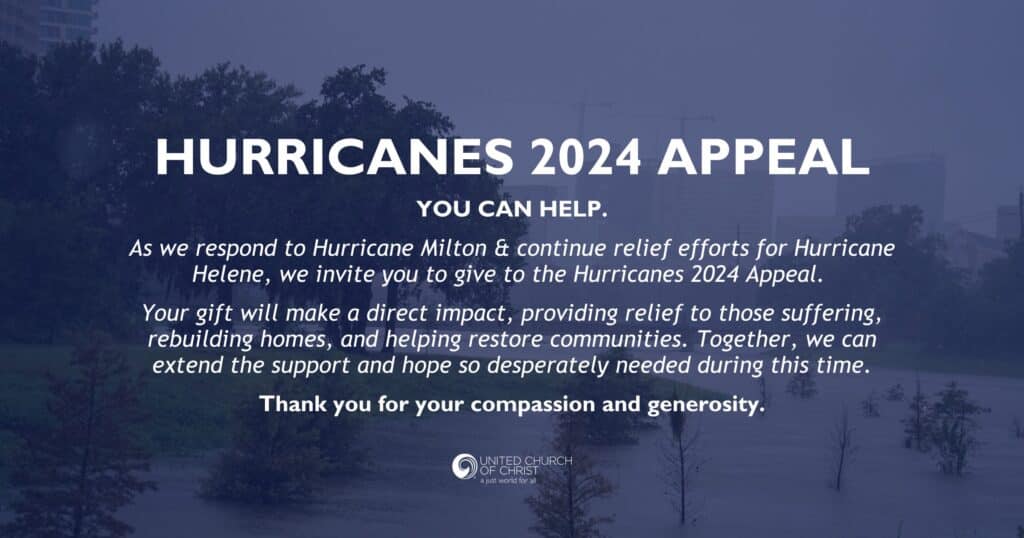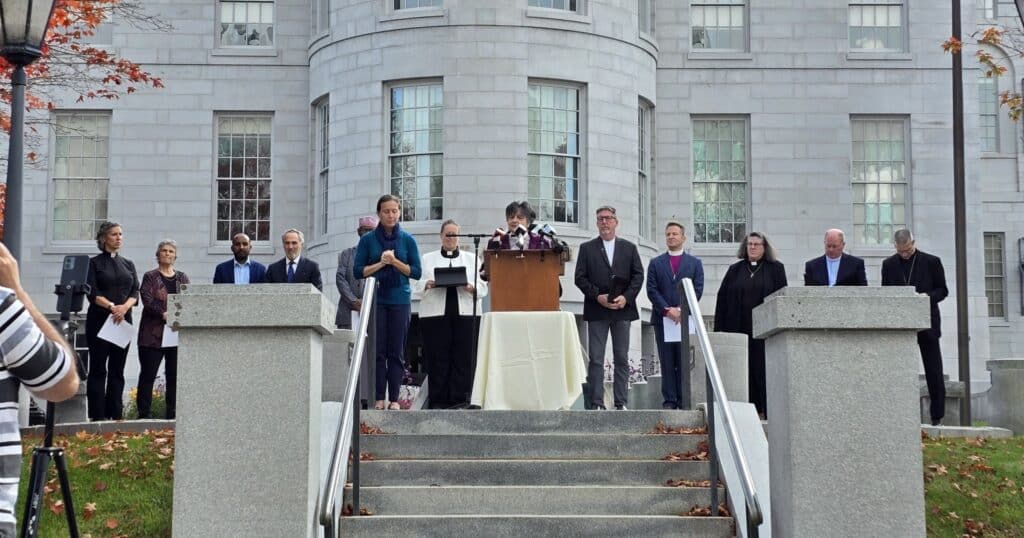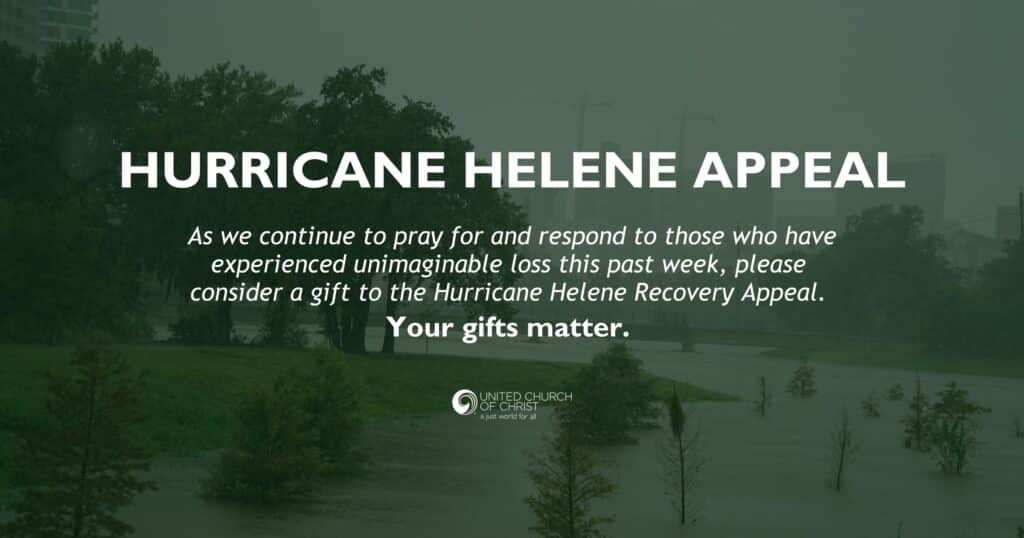What is a VOAD, and why should I care?
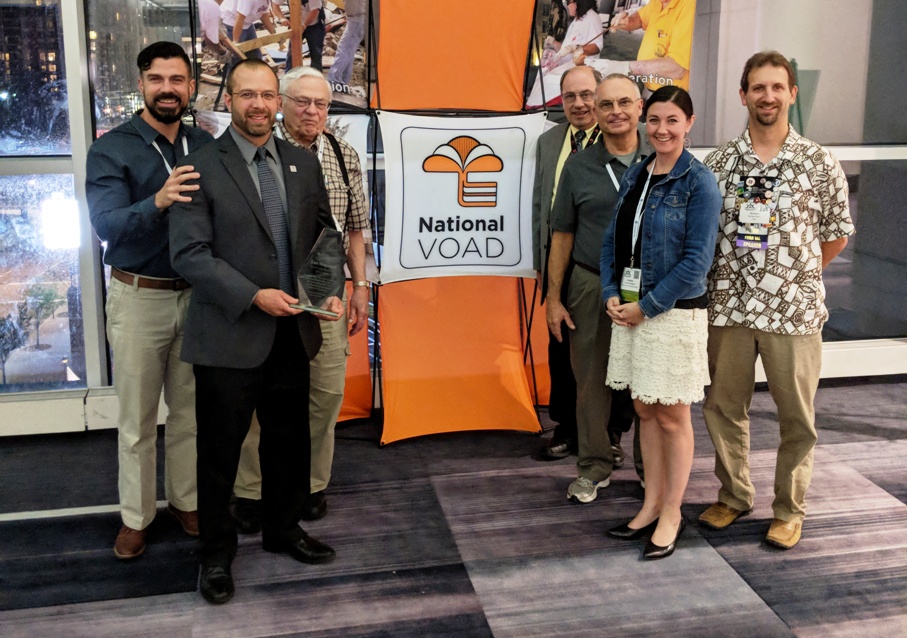 What the heck is a VOAD? UCC Disaster Ministries folks are always talking about VOADs – National VOAD this, state VOAD that, the VOAD movement.
What the heck is a VOAD? UCC Disaster Ministries folks are always talking about VOADs – National VOAD this, state VOAD that, the VOAD movement.
“VOAD” – no doubt about it, it’s a funky acronym. By the way, how is “VOAD” pronounced? And why, as a member of the United Church of Christ, should I care about VOADs?
First things first. “VOAD” is pronounced “VOH-ADD” and stands for Voluntary Organizations Active in Disaster.
Yep, it’s a mouthful. That’s as it should be: the VOAD movement is the largest and most important non-governmental disaster response and recovery network in the United States. National VOAD’s members include 64 national organizations like UCC Disaster Ministries along with 55 state and U.S. territories’ VOADs.
When disaster strikes, these are the organizations that join forces with government agencies like FEMA to respond. They also work together to help communities prepare for and mitigate disasters.
The 2018 National VOAD Conference just concluded in Providence, R.I. Of the more than 615 in attendance, the United Church of Christ had nearly a dozen participants (some, but not all, of them pictured above), a sign of its commitment to and esteem for the VOAD movement.
The UCC contingent was headed by UCC Disaster Ministries Executive Zach Wolgemuth, who just completed six years on the National VOAD Board, the past year as chair. He also headed the 2018 Conference Committee. He will continue on National VOAD’s International, Bylaws and Strategic Planning committees.
Wolgemuth is a true believer in VOADs. He comments, “The VOAD movement is stronger than it has been in its nearly 50 years. It is the main conduit for information sharing, for developing best practices and for carrying out the core principles of cooperation, communication, coordination and collaboration.
“It’s the place people come to for gleaning information and also where the best in the brightest in the disaster recovery field are found. It’s the place everyone comes together.”
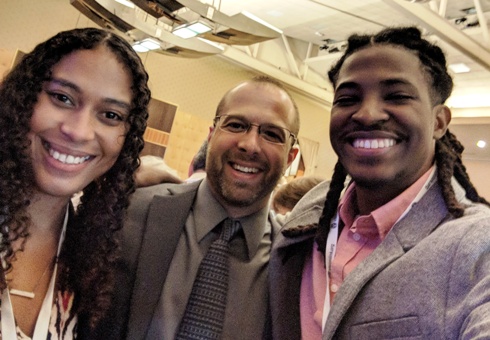 With Wolgemuth at the 2018 national conference were several UCC conference disaster coordinators (most of whom serve on National VOAD committees); Joshua Lawrence, the coordinator of the UCC’s Hurricane Harvey recovery work in Texas, and Imani Daniel, the chair of the Hurricane Maria and Irma long-term recovery group in the U.S. Virgin Islands (USVI). (Daniel and Wolgemuth are pictured, right, with Ty Webster-Reid.)
With Wolgemuth at the 2018 national conference were several UCC conference disaster coordinators (most of whom serve on National VOAD committees); Joshua Lawrence, the coordinator of the UCC’s Hurricane Harvey recovery work in Texas, and Imani Daniel, the chair of the Hurricane Maria and Irma long-term recovery group in the U.S. Virgin Islands (USVI). (Daniel and Wolgemuth are pictured, right, with Ty Webster-Reid.)
For Daniel, attending the conference was life changing. “We are so often forgotten and overlooked,” she said of USVI, which is in the Atlantic Ocean more than 1,000 miles from the U.S. mainland and whose residents are U.S. citizens.
Last September, Hurricanes Irma and Maria crippled water, power and communications and damaged nearly 11,000 homes. Many people are still without water or power, and many are still living in houses without roofs and overgrown with mold.
At the National VOAD conference, Daniel said, “I realized what a huge network we, survivors, have going to work for us every day. I will never forget the love and support that has been shown to us from ‘strangers’ all over the States.”
The St. Thomas Recovery Team, that Daniel chairs, is partnering with the ecumenical Disaster Recovery Support Initiative, which includes the UCCand intends to complete repairs for 100 to 150 households and develop individual recovery plans for 1,000 to 1,500 households.
They are focusing on vulnerable population households (elderly, disabled, single parent and low to median income) identified as having unmet needs who are unable to participate in FEMA repair programs and have exhausted the resources available to recover on their own.
That initiative gives clues, Wolgemuth said, to what UCC Disaster Ministries contributes to the VOAD movement.
“We believe everyone should have a voice at the table,” he said. “In the UCC, we have a keen eye for seeing who’s not at the table and we try as best we can to include disaster-impacted people in the conversation and the decision making – for example, renters, refugees and immigrants, including the undocumented. We’re also advocating to increase National VOAD’s racial diversity, and focus on resilience and preparedness.”
“Disaster recovery and response begins and ends locally,” Wolgemuth added. “The UCC has 5,000 churches across the country, with close to a million members. If each of those individuals can be prepared for disaster, that’s huge.”
Related News
UCC expands appeal for relief efforts following Hurricane Milton
The United Church of Christ has extended the scope of its appeal for Hurricanes 2024 Relief...
Read MoreMaine Conference holds interfaith remembrance to grieve, heal one year after Lewiston shootings
A group of interfaith leaders offered public prayer and space to grieve last Tuesday for those...
Read MoreUCC issues appeal for those impacted by widespread destruction of Hurricane Helene
The United Church of Christ has launched an appeal and opportunities to support recovery...
Read More